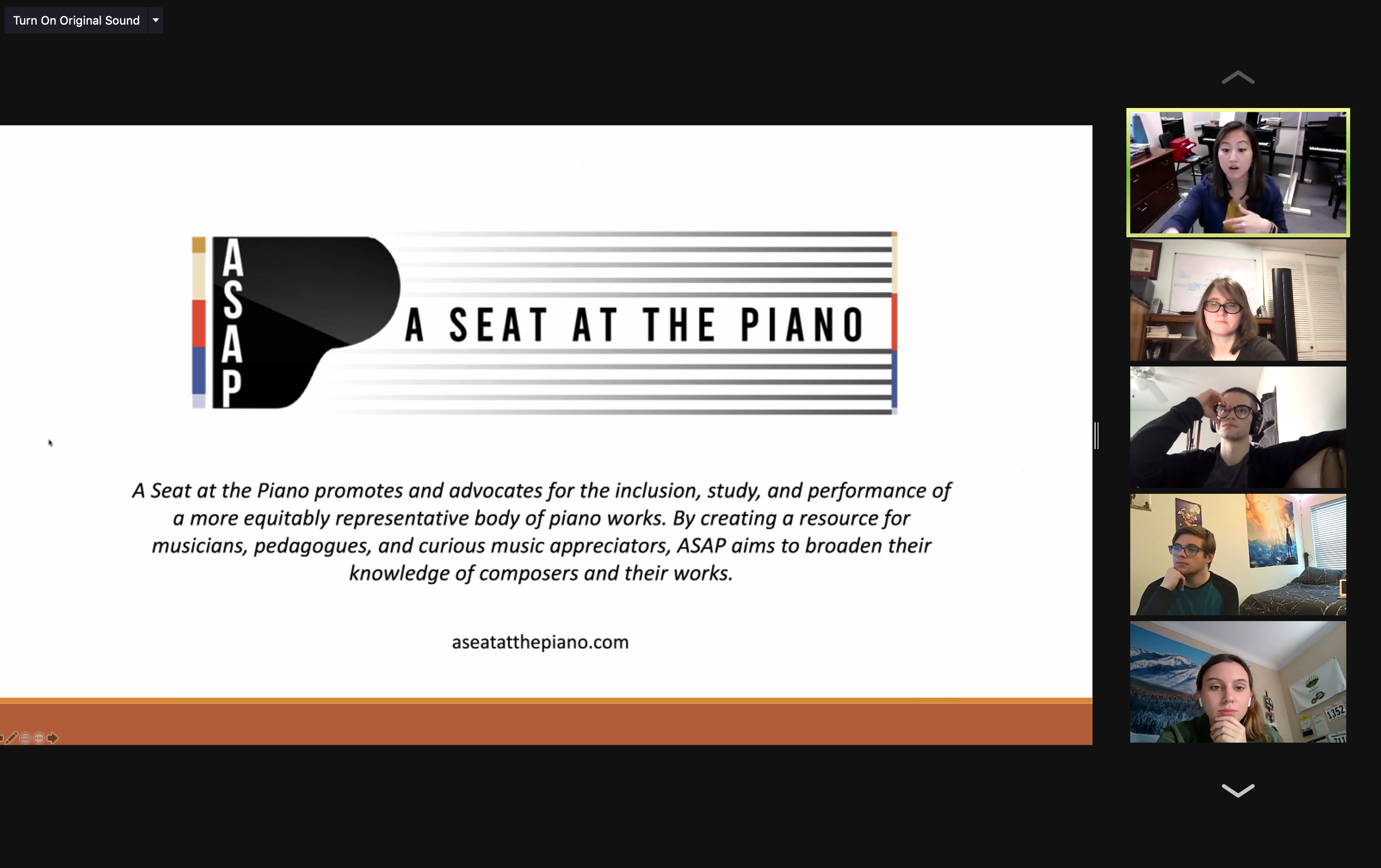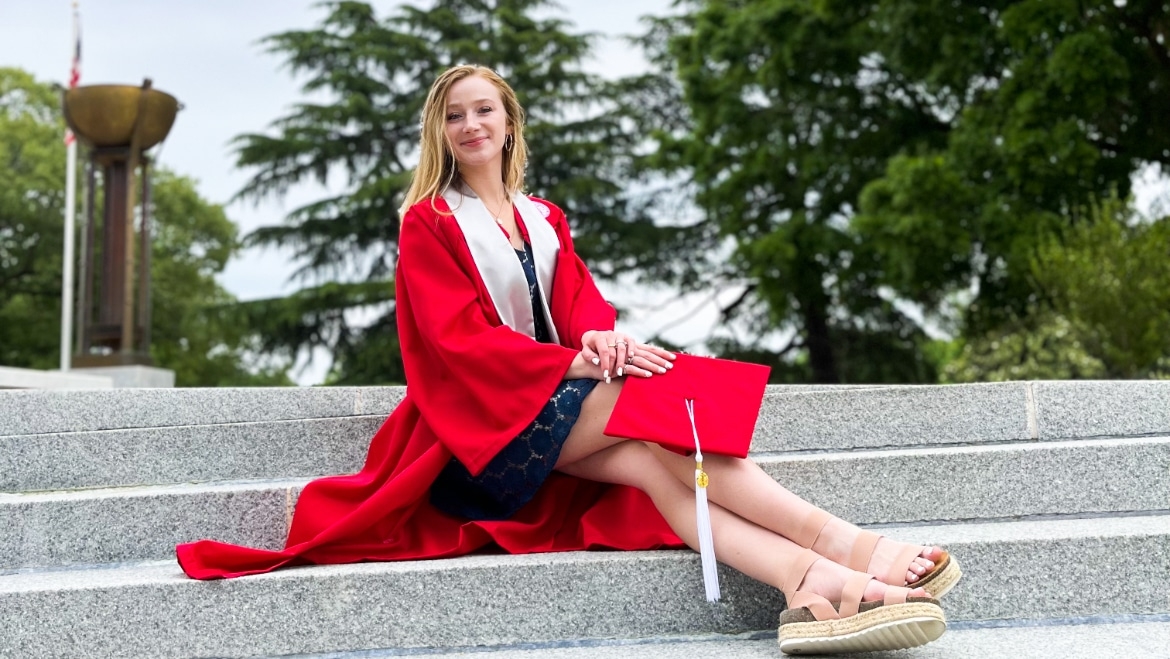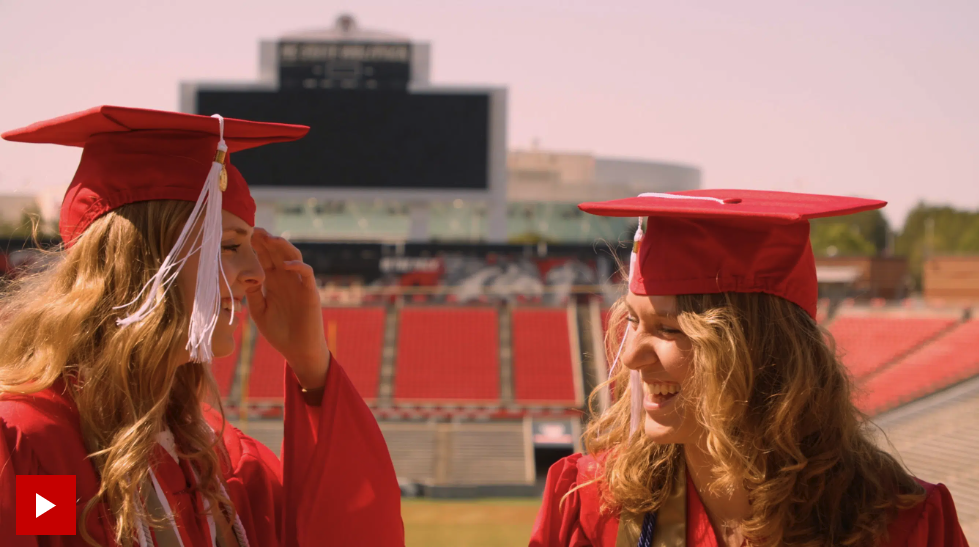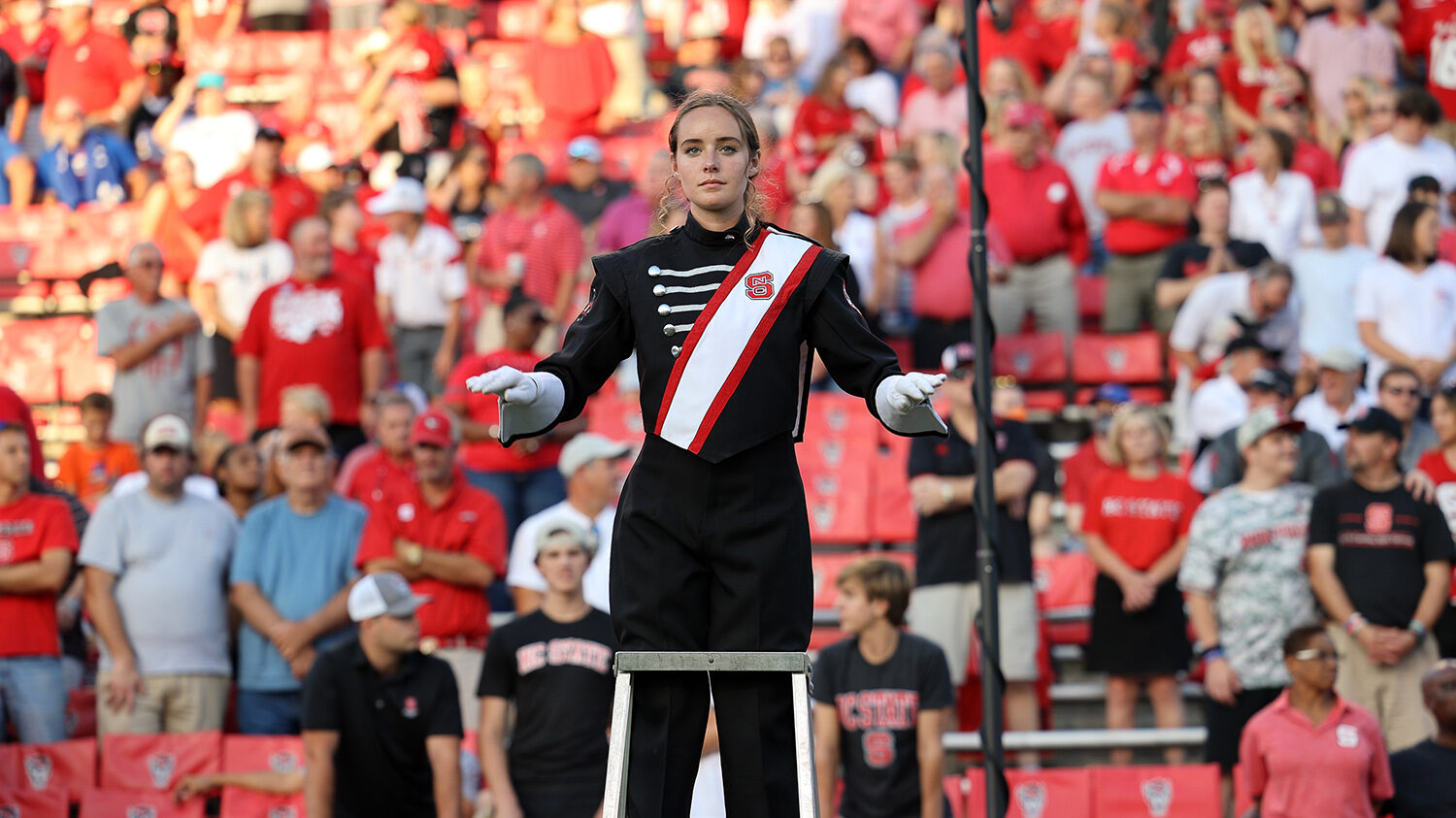Staying connected through learning

Associate teaching professor Olga Kleiankina curates a virtual lecture and master class series to help her piano students connect with one another online while challenging them in new ways.
(TOP PHOTO) In this screenshot from a virtual lecture, Annie Jeng, assistant professor of piano pedagogy at UNC-Greensboro, discusses the importance of diversifying the piano performance repertoire canon and introduces students to new composers. Photo courtesy of Dr. Olga Kleiankina.
The piano performance minors in the Department of Music, taught and advised by associate teaching professor Olga Kleiankina, tend to be a tight-knit group of students. In normal years, Kleiankina gathers them together for occasional studio classes, master classes, or in the piano pedagogy class (MUS 208)—a required course for piano minors that is offered every other year. Due to the nature of the piano’s role in an ensemble, most piano minors don’t perform in an ensemble with other piano minors the way brass, woodwind, percussion or voice minors have the opportunity to do, so Kleiankina is intentional about creating opportunities for her students to get to know one another as they pursue the minor.
This year, in the absence of the pedagogy course and without any way to gather the piano students in person, Kleiankina recognized that her students were missing the connection to one another. “We used to have a very strong studio. We were very connected,” she said. “And with the pandemic it was very hard to stay connected. Some students were stuck at home and there was too much noise, and they couldn’t join [live] on Zoom at all.”
Her first idea for bringing the students together was to create a Facebook group where they could share videos of their practice and receive feedback, but it didn’t take off with her students. She thought of master classes as an opportunity to bring them together, but they’re difficult to schedule in the first half of the semester because students haven’t yet learned their assigned music to the point where a master class would be beneficial to them. So she decided to start the series with several guest lectures, and allow the students to connect and learn while they build toward master classes.
The lectures take place on Zoom and Kleiankina encourages interaction between the students and the guest speakers.
“I’m trying to create an environment for our students where they can feel that anyone can practice music, play piano proficiently, be creative,” said Kleiankina. “You don’t have to be a music major in order to play music, and as long as you are interested and committed, you are always learning. In fact, our students are in a much better position than many music graduates because they can do music and something else. So I hope that the opportunity to talk to these young musicians, understand their take on music, their creative processes will inspire our students and will make them feel more ‘at home’ with music.”
A master class is an opportunity for a musician to work with a guest artist one-on-one, to receive feedback and instruction from someone who can provide a different perspective than what they may hear from their primary teacher. For advanced students, this new perspective can be a powerful tool in their development as musicians.
But how does a master class work when you can’t meet in person? Kleiankina says, surprisingly, it almost works better.
“With the technology nowadays it’s so effective. For piano, Zoom with a good microphone and webcam works fantastic,” Kleiankina said. “Honestly, maybe it’s even better than attending a master class when it’s in a large room and you’re sitting far away because you have no idea how the hands look and you don’t see that much of the presenter,” she added. “But when you can put the presenter on the entire screen and you [can see what their hands are doing], you are learning. You’re not just back there observing but you are learning too. In a way, I enjoy it better.”
The new technology that everyone is learning to use during the pandemic, such as Zoom, is breaking down other barriers for student-musicians in the department, too. For the lecture half of the series, Kleiankina is bringing in speakers who normally would be out of reach due to the expense of paying for their travel expenses. Zoom allows experts and musicians from anywhere in the world to speak directly to students and answer their questions.
“It has actually cleared the barriers because I wouldn’t be able to invite these people in person, [their travel expenses] would cost a ton…I would probably be able to invite one guest artist,” said Kleiankina. “Probably in the future we will still use technology to create this kind of lecture series.”
Department Head Dan Monek agrees that, once the Zoom fatigue of the last year starts to fade, the department can potentially use technology to grow its Price Music Center Lecture Series and invite diverse perspectives in music to share with students and the community.
“As a university, in general, I think we’ve learned a lot this year. The biggest thing, which seems so obvious, is how easy it is to talk to people—experts and musicians—halfway around the world,” said Monek. “In the old mindset, bringing somebody here for a lecture or residency was very expensive and we couldn’t do it as often as we desired. Well, we can be doing it a lot more, so I think our students’ education is going to be a lot more diverse and a lot more global, and that’s great.”
The lectures Kleiankina has arranged for the piano students cover an eclectic mix of topics including mindfully diversifying your piano repertoire, how to succeed as a professional musician, music and repression under Soviet rule, and the piano music of Colombia. Kleinkina has opened them up to the students enrolled in group piano classes, as well as students living in the Arts Village, and hopes to gradually grow the audience for these sorts of offerings. ♫
- Categories:


